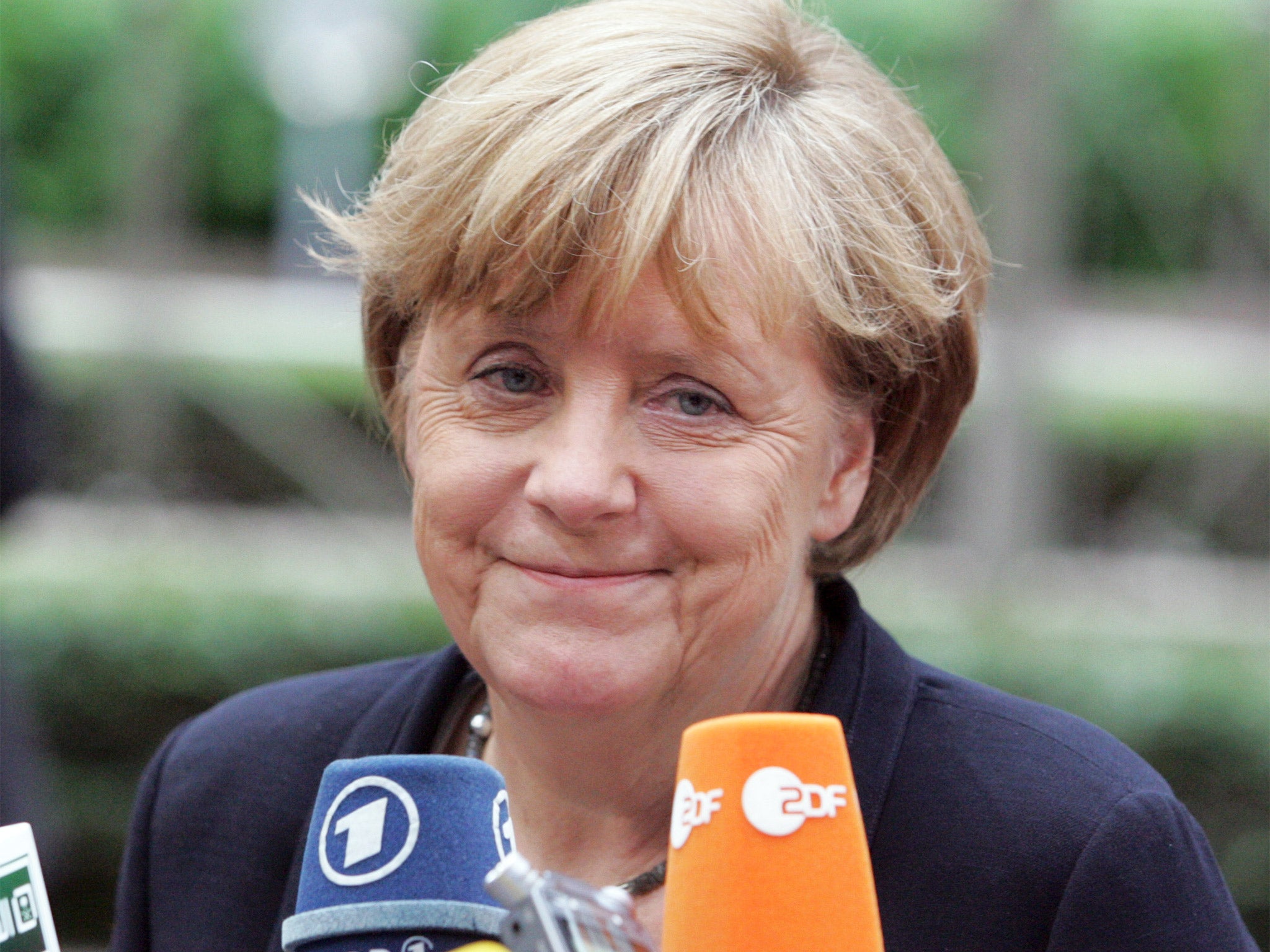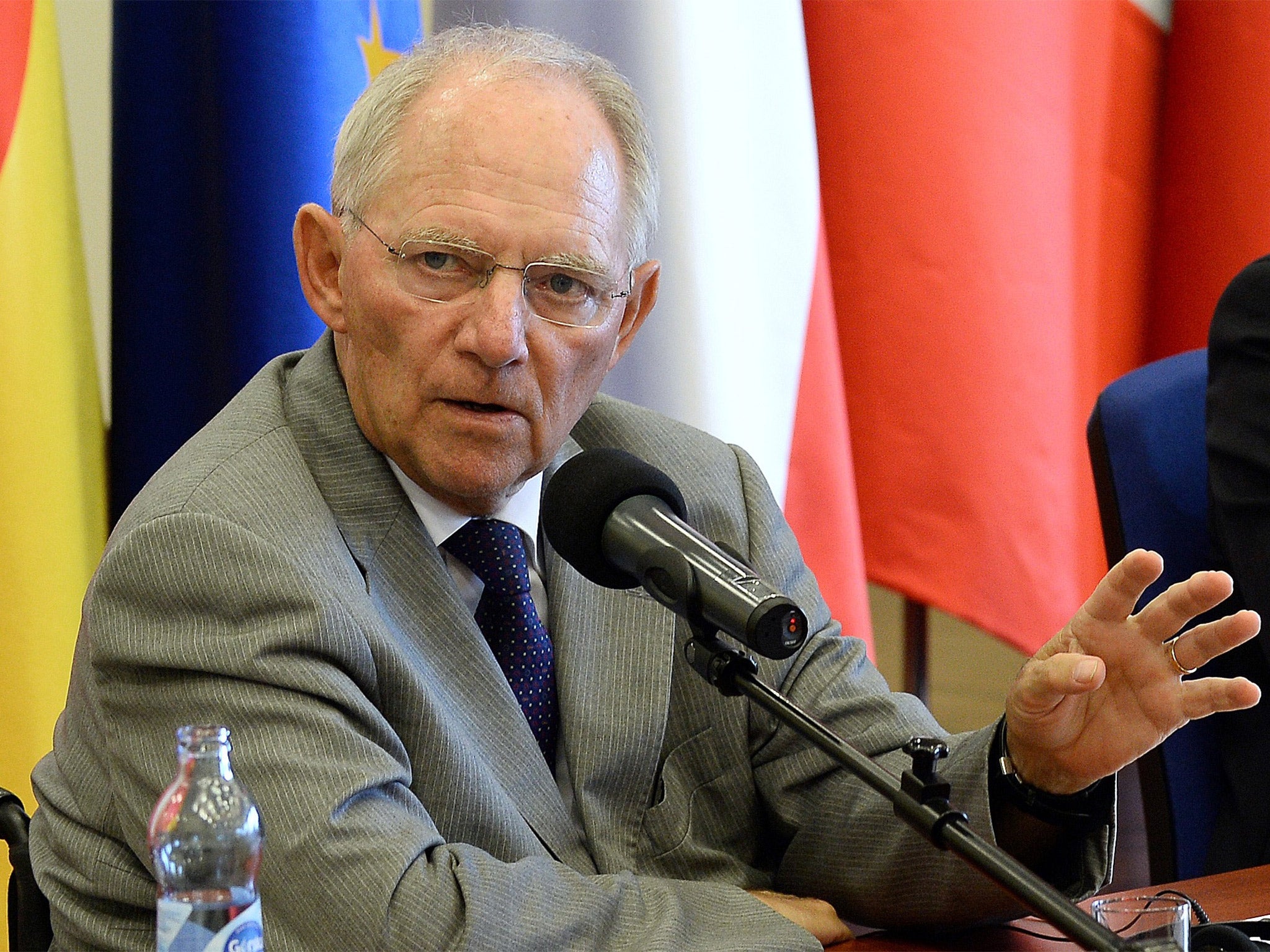Greece debt crisis: Angela Merkel faces revolt from the right for wanting to keep Athens in euro
One MP described the Greek government as 'rip-off merchants' and 'conmen'

Your support helps us to tell the story
From reproductive rights to climate change to Big Tech, The Independent is on the ground when the story is developing. Whether it's investigating the financials of Elon Musk's pro-Trump PAC or producing our latest documentary, 'The A Word', which shines a light on the American women fighting for reproductive rights, we know how important it is to parse out the facts from the messaging.
At such a critical moment in US history, we need reporters on the ground. Your donation allows us to keep sending journalists to speak to both sides of the story.
The Independent is trusted by Americans across the entire political spectrum. And unlike many other quality news outlets, we choose not to lock Americans out of our reporting and analysis with paywalls. We believe quality journalism should be available to everyone, paid for by those who can afford it.
Your support makes all the difference.Chancellor Angela Merkel’s fraught negotiations over Greece’s eurozone future have been threatened by a growing revolt within her own conservative ranks as dozens of right-wing MPs and politicians queued in opposition to the idea of more aid for Athens.
The notion that Sunday’s referendum would persuade Germany to spend more taxpayers’ money on bailing out Greece was angrily dismissed by numerous renegade Christian Democrat (CDU) MPs in media interviews. “We must now end this experiment with the reform-reluctant Greeks,” said Christian von Stetten, head of the CDU’s small business association group in parliament. Earlier he described Greek government representatives as “rip-off merchants” and “conmen”.
Andreas Scheuer, general secretary of the Bavarian wing of Ms Merkel’s conservatives, was more emphatic. “Greece has said No and as far as we are concerned that means no to negotiations and to a further aid package,” he told Germany’s Bild newspaper.

Other leading conservatives said they agreed with the Finance Minister, Wolfgang Schäuble, who has said that the “honest and consequent approach” would be for Greece to leave the eurozone. Ms Merkel has been at odds with her Finance Minister by insisting over past months that Greece should remain inside.
All this is playing with the German public – an opinion poll yesterday showed a significant 3.5 per cent gain for Ms Merkel’s conservatives, but not for her policies. “The voters trust the conservatives more on Greece. Above all they rely on Mr Schäuble and his solid approach,” said Hermann Binkert, head of the Insa group behind the poll.
The prospect of a full political revolt is now a real prospect. In February, 29 conservative MPs voted against continuing to aid Athens. Since then more than 100 conservative MPs have voiced opposition to the idea.
Der Spiegel magazine warned yesterday that Ms Merkel would have to “reckon with rebels” if and when the issue of further Greek aid is put before parliament, as it must be under German law. “She may even have to call a confidence vote,” the magazine said.
The German media has been unanimous in its view that Ms Merkel is desperate not to go down in history as the chancellor who initiated the break-up of the eurozone. Yet observers say she faces opposition on nearly all sides.
The International Monetary Fund and Greece favour debt restructuring or even a write-off to enable Athens to sell its reforms to the electorate and encourage growth.
For Ms Merkel, those ideas have remained taboo because of fears that German taxpayers would foot the bill. Without convincing progress on Greek reform, German backing for a further aid package is almost unthinkable.
But France, Germany’s main eurozone partner, has rejected the idea of a Greek exit. Ms Merkel has but a few days to reach a compromise acceptable to all – not least her own party.
Join our commenting forum
Join thought-provoking conversations, follow other Independent readers and see their replies
Comments